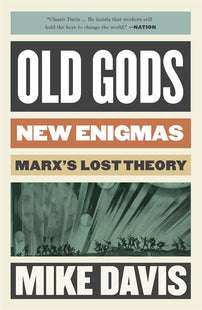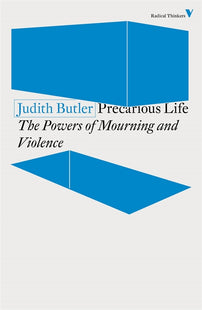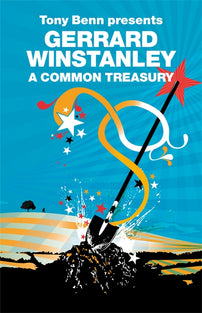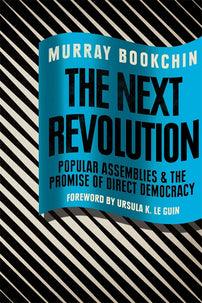Solidarity in Times of Crisis
In response to the novel coronavirus outbreak, mutual aid groups have sprung up across Britain to help those most vulnerable. Adam Quarshie looks at the actions of these solidarity networks, and asks what we can learn from the history of mutual aid.

I’d been away in Portugal for a week, escaping the bleakness of British winter, when the severity of the coronavirus crisis began to reveal itself. At the hostel I was staying at in Lisbon, the other residents and I caught news updates on a TV in the living room. We shared half-arsed conspiracy theories and joked about which one of us might be harbouring the virus, not considering for an instant how the situation was about to escalate and consume our lives. At that point, the crisis was still largely happening in far-away places - China, Iran, South Korea - and Europe, with the exception of northern Italy, had remained largely unaffected. Yet, on returning to the UK a few days later, it was clear that I was stepping back into a drastically different social and political reality.
It was at my local supermarket that the first waves of anxiety hit. I went on a Friday evening to find the aisles containing fruit and veg, bread, pasta and rice stripped bare. Within a short space of time, ordinary life had been suspended. A friend texted me to say he was helping to organise a mutual aid group for Bristol, where I live. I logged on to Facebook and joined, and saw the posts that would once have been given over to enquiries about lost dogs and second-hand clothes replaced by offers of help to those most vulnerable to the infection.
In this, Bristol was far from alone. At the time of writing, more than 700 mutual aid groups have sprung up around the country. It’s heartening that despite a decade of austerity and several years of political polarisation in the UK, basic bonds of solidarity, empathy and altruism have remained intact. But though it has rapidly becoming part of everyday life, mutual aid is a concept with radical origins. In fact, it has been one of the central tenets of anarchist theory for over a century.
Mutual Aid and Social Darwinism
The concept of mutual aid, as it’s now understood, can be traced to one of the core texts of early anarchist thought, Pyotr Kropotkin’s Mutual Aid: A Factor of Evolution. Born to an aristocratic Russian family in Moscow in 1842, Kropotkin was eventually disinherited of his noble title, and went on to become an activist and revolutionary, spending many decades of his life in exile. Originally published in English in 1902, Mutual Aid was Kropotkin’s response to the Social Darwinist theories that had taken hold in Europe towards the end of the 1800s. Social Darwinism applied some of the theories laid out in Darwin’s On The Origin Of Species, (published in 1859), to human social organisation. Human life was depicted as one big struggle for resources between innately competitive individuals, which was reflected in a hierarchical social order.
Kropotkin didn’t accept this brutal depiction of human competitiveness. Instead, he posited that cooperation was just as important a factor in ensuring any given species’ survival. His theory drew on two strands of research. The first was observation of the natural world. Years earlier Kropotkin had served in the Cossack regiment of the Russian army, and later took part in geographical surveys in Siberia and Manchuria. His growing interest in biology, and his observations of how animals survived in the harsh conditions he encountered, led him to believe that “mutual aid is as much a law of animal life as mutual struggle”. He drew on examples such as the highly organised social lives of ants, termites and bees, as well as the communal hunting patterns of certain birds and mammals, to conclude that animal species’ best chances of survival came through cooperation.
[book-strip index="1" style="display"]He also based his theories on studies of human societies, particularly those of Australia, Polynesia, Papua New Guinea and the Arctic. He noted how hunting or fishing rights were often shared collectively in tribe or clan-based indigenous cultures, and kinship bonds rather than hierarchical social structures prevailed. It should be noted at this point that though Kropotkin was a radical thinker in the context of late nineteenth-century Russia, his writing was still shaped by the prejudices of his time. His chapter entitled ‘Mutual Aid among Savages’, for instance, is tainted by assumptions of innate European superiority.
Nonetheless, he believed that the communal tendencies found in clan-based cultures were also present in European societies, particularly in the city-states of Medieval Europe. The common structure of guilds - proto-unions organised around particular trades – were one such example, where raw materials were bought and sold in common. He also pointed to the social structure of some medieval cities, which were organised into ‘quarters’ which functioned semi-autonomously. Yet, these communal practices were increasingly undermined by the expansion of the early modern state.
Historical and contemporary examples of mutual aid
Since the early 1900s, mutual aid has been a central principle of anarchist practice. Even if in the common understanding of the term, anarchism is characterised as a philosophy of violence and disorder, there are plenty of examples of anarchist concern with organising everyday life in all its mundane aspects, in the absence of the state.
As such, the production and distribution of food has often been a key concern. Food Not Bombs, a voluntary network active in dozens of cities across the world, is based on the redistribution of food destined for landfill, turning ‘waste’ food into free vegetarian or vegan meals for whoever needs them. Likewise, squatted social centres - in Europe, the Americas and beyond - as well as the Occupy movement, which first emerged in New York in 2011, have mutual aid at their core.
Other examples of mutual aid have coincided with intense periods of upheaval. During the economic crisis that rocked Argentina in the early 2000s, as the country defaulted on its massive debts and citizens saw their savings crumble and their jobs disappear, a parallel economy, based on principles of mutual aid, sprang up in neighbourhoods across the country. Factories which had been shut down and abandoned by their bosses were taken over and run collectively by their workers. Community kitchens emerged to provide food to whoever needed it, and redes de trueque - barter networks - emerged as a way for Argentinians to trade essential goods and services without money.
In the United States, much grassroots organising and community activism has undeniably been influenced by the Black Panther Party. Though not an anarchist organisation, the Panthers were nonetheless instrumental in changing how radical organisations intervened at a neighbourhood level, particularly through their community initiatives such as free breakfasts for school children
Former members of the Panthers, as well as other radical grassroots groups, have gone on to form mutual aid groups in response to environmental disasters. Mutual Aid Disaster Relief is one such organisation. Based on principles of “solidarity not charity”, it emerged in the wake of Hurricane Katrina in 2005. After the US government’s abysmal response to the disaster, which left thousands of people - particularly in poorer, African-American neighbourhoods - stranded and without support in New Orleans, community organisers began to form networks to distribute food, shelter and medical care. As their website puts it: “Mutual aid projects are a form of political participation in which people take responsibility for caring for one another and changing political conditions”.
Voluntarism and the retreat of the state - limitations of Mutual Aid?
In radical organising, mutual aid has deep roots, often surfacing in times of crisis to create support networks when state responses have been inadequate. But herein lies one of its paradoxes: mutual aid, (or ideas very similar to it), can dovetail quite well with conservative ideology. Back in 2010, in the wake of the Conservative Party victory in the UK, David Cameron unveiled his vision of ‘The Big Society’, in which voluntary organisations would step in on a local level to take power away from Westminster politicians. Few people took this idea seriously at the time, and within a few years it had quietly vanished.
However, the idea that voluntary organisations should pick up the slack left by a retreating state - one which is dedicated to reducing welfare spending and cutting public services - has remained. Over the past few years, John Harris and John Domokos’ series Anywhere But Westminster, has documented numerous examples of community organisations run by volunteers (often women), which have had to step in to fill the gaps in the social fabric left by Tory spending cuts.
The current pandemic could well represent a rupture, a moment where our political systems come apart completely in the face of unprecedented pressure. The Conservatives are now openly discussing massive state intervention in the economy, as well implementing Universal Basic Income, in order to prevent widespread economic collapse, something that would have been unthinkable just a few weeks ago. The spontaneous creation of mutual aid groups is a welcome and necessary response to the crisis. But rather than merely plugging the gaps left by a state which has shirked responsibility for its most vulnerable citizens, mutual aid can offer something else: the seeds of a fundamental reimagining of our society, and the creation of social structures built on solidarity and cooperation, and which recognise our intrinsic interconnectedness.
Adam Quarshie is a freelance writer based in Bristol. He writes on music and culture and also works as a copywriter in the arts and non-profit sectors. In the past, he was a support worker with homeless people.
[book-strip index="2" style="display"]



